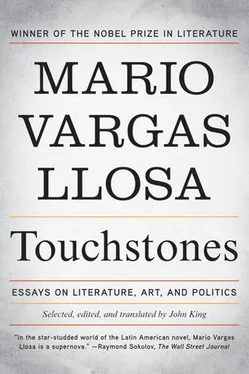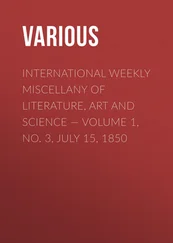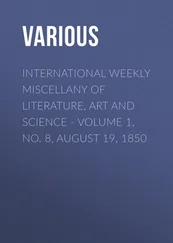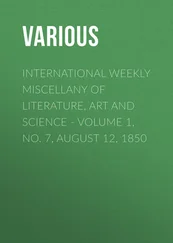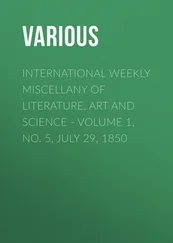Does this mean that Don Quixote de la Mancha is an old-fashioned book, and that Alonso Quijano’s madness stems from a desperate nostalgia for a world now lost, from a visceral rejection of modernity and progress? This would be the case if the world that Don Quixote longs for and tries to revive had ever been part of history. For in truth, this world only ever existed in the imagination, in the legends and utopias fashioned by human beings in order to escape, to some extent, from the insecurity and brutality of their lives, and to find refuge in a society of order, honour and principles, of men who would seek justice and redemption for them, and offer redress for the violence and sufferings that made up the true lives of men and women in the Middle Ages.
The chivalric literature that makes Don Quixote lose his mind — this is an expression that must be taken metaphorically rather than literally — is not ‘realist’, because the delirious exploits of its champions do not reflect a lived reality. But it is a genuine, imaginative response to this reality, full of hopes and desires, which above all else rejects a very real world which was totally opposite to this ceremonious and elegant order of things, to this representation in which justice always triumphed and crime and wickedness was punished. It was in the real world, full of anxieties and despair, that people avidly read the romances of chivalry (or listened to them being read aloud in taverns and town squares).
So the dream that turns Alonso Quijano into Don Quixote de La Mancha is not an attempt to revive a past, but something much more ambitious: it is an attempt to make the myth a reality, to transform fiction into living history. In the course of the novel this endeavour, that seems purely and simply absurd to everyone around Alonso Quijano, especially to his friends and acquaintances in his unnamed village — Nicolás the barber, the housekeeper and his niece, Bachelor Sansón Carrasco — gradually begins to infiltrate reality, one might say because of the fanatical conviction with which the Knight of the Sorry Face imposes it on his surroundings, without being in the slightest bit daunted by the kicks and blows and misfortunes that rain on him from all sides because of it. In his splendid analysis of the novel, Martín de Riquer insists that from the beginning to the end of his long journey, Don Quixote does not change — he repeats himself time and again, without ever wavering in his certainty that it is the sorcerers who change reality so that he seems to be mistaken when he attacks windmills, skins of red wine, goats or pilgrims, thinking them to be giants or enemies. 13That analysis is doubtless correct. But although Don Quixote does not change, bound up as he is in his rigid, chivalric view of the world, what does change are his surroundings, the people around him, and reality itself which, as if contaminated by his powerful logic, becomes gradually less and less realistic until — as in a Borges story — it becomes a fiction. This is one of the subtlest, and also one of the most modern, aspects of Cervantes’s great novel.
Fiction and Life
The major theme of Don Quixote de La Mancha is fiction, its raison d’être , and the ways in which, as it seeps into life, it shapes and transforms this life. Thus what seems to many modern readers to be the quintessential ‘Borgesian’ theme — one that we find in ‘Tlön, Uqbar, Orbis Tertius’ — is, in fact, a Cervantes theme that, several centuries later, Borges would take up, giving it his own personal seal.
Fiction is a central issue in the novel because the hidalgo from La Mancha who is the main protagonist has been ‘driven crazy’ — and we must also see his madness as an allegory or a symbol rather than as a clinical diagnosis — by the fantasies in the romances of chivalry. And, since he believes that the world is as it is described in the romances of Amadis and Palmerin, he goes out into the world in search of adventures, which become parodies, suffering and causing minor catastrophes along the way. He does not learn any lessons in reality from these bad experiences. With the unshakeable faith of the fanatic, he blames evil sorcerers for the fact that his deeds always unravel and become farcical. In the end, he gets his way. Fiction contaminates life and reality gradually bends to the eccentricities and fantasies of Don Quixote. Even Sancho Panza, who in the opening chapters is presented as a supremely earthy, materialistic and pragmatic being, has in the second part also succumbed to the enchantments of fantasy and, when he is made governor of the island of Barataria, he cheerfully adapts to a world of deceit and illusion. His language, which is direct and popular at the beginning of the story, becomes refined in the second part, and there are passages where he sounds as mannered in speech as his own master.
Is it not through fiction that poor Basilio attempts to win back the beautiful Quiteria, preventing her marriage to rich Camacho, and having her marry him instead (I, 19–21)? Basilio ‘commits suicide’ as the wedding is about to take place, driving a sword into his body and bathing himself in blood. And, in his death throes, he asks Quiteria whether, before he dies, she will give him her hand because, if not, he will die without making his confession. As soon as she does so, Basilio revives, revealing that his suicide was a piece of theatre and that the blood spilled had been hidden in a hollow tube. The fiction is effective, however, and, with the help of Don Quixote, it becomes a reality, because Basilio and Quiteria marry.
Don Quixote’s friends in the village, who are so hostile to literary romances that they make an Inquisition bonfire of his library, resort to fiction with the pretext of curing Don Quixote of his madness: they devise and enact scenes to return the Knight of the Sorry Face to sanity and the real world. But, in fact, they achieve the opposite: the fiction begins to devour reality. Bachelor Sansón Carrasco disguises himself twice as a knight errant, the first time with the pseudonym of the Knight of the Mirrors, the second, three months later in Barcelona, when he appears as the Knight of the White Moon. On the first occasion, the deception is counterproductive because it is Don Quixote who gets his way; the second time, however, he achieves his goal, defeats Don Quixote and makes him promise to give up arms for a year and return to his village. With this, the story moves towards its end.
This ending is a rather depressing and forced anticlimax, and perhaps for that reason Cervantes finished it off so quickly, in a few pages. For there is something untoward, even unreal, in the fact that Don Alonso Quijano relinquishes his ‘madness’ and returns to reality when that reality around him has been so largely transformed into fiction. The grieving Sancho Panza (the reality man) reveals as much when he pleads with his master, on his deathbed, not to die, exhorting him to get up so that they can go into the countryside dressed as shepherds and act out, in real life, the pastoral fiction that is Don Quixote’s final fantasy (II, 74).
This process of fictionalisation of reality reaches its climax with the appearance of the mysterious, unnamed Duke and Duchess who, from chapter 31 of the second part, accelerate and multiply the transformation of daily life into theatrical and fictional fantasies. Like so many other characters, the Duke and Duchess have read the first part of the novel, and when they come across Don Quixote and Sancho Panza, they are as bewitched by the novel as Don Quixote is by romances of chivalry. And then they arrange things in such a way that in their castle life becomes fiction, and everything in it reproduces the unreality that Don Quixote is living in. For many chapters, fiction takes over from life, turning it into fantasy, a dream become reality, literature lived as life itself. The Duke and Duchess do this for their own egotistical, even despotic reasons, so that they can amuse themselves at the expense of the madman and his squire; at least, that is what they think. What happens is that the game begins to take them over and absorb them to such an extent that, later on, when Don Quixote and Sancho Panza leave for Zaragoza, they do not accept this and send out their servants and soldiers to scour the vicinity until they find them and bring them back to the castle where they have staged the fabulous funeral ceremony and purported resurrection of Altisidora. In the world of the Duke and Duchess, Don Quixote is no longer an eccentric: he is quite at home because everything around him is a fiction, from the island of Barataria where Sancho Panza finally lives out his dream of becoming a governor, to the airborne flight on the back on the artificial horse, Clavileño, the air from large bellows creating the winds through which the great man of La Mancha gallops amid clouds of illusion.
Читать дальше
